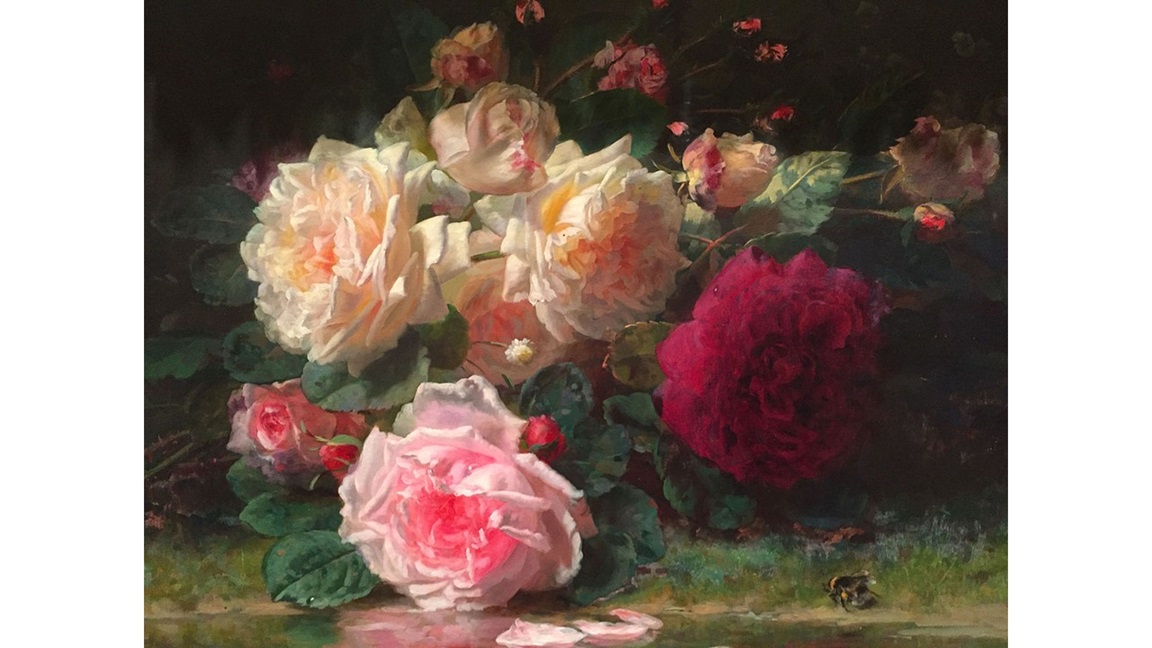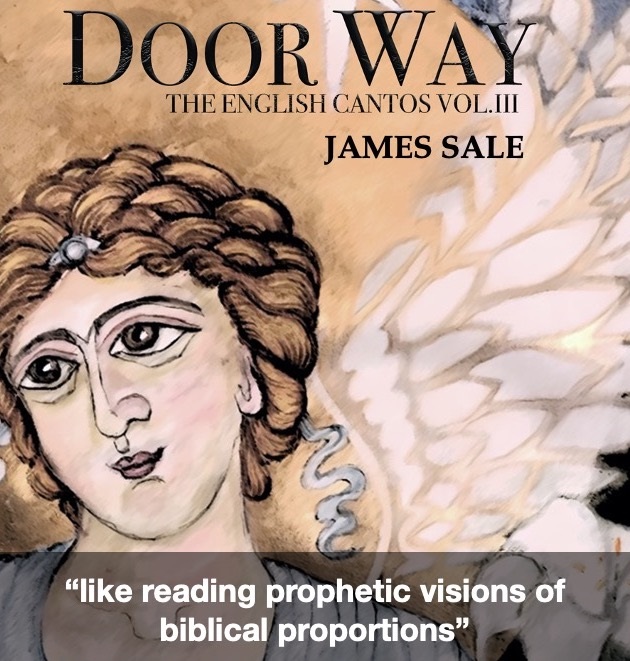.
Sepulcher
Jerusalem is built of prayer and quarried stone,
From yearning, heartache, sacred scrolls and ancient bone—
The shuls, the mosques, the churches, every ancient room.
And as a bride prepares with longing for her groom
Believers come with downcast eyes, with hopes unknown,
To ponder and to pray—or possibly atone—
As pilgrims to this Church built on the Savior’s tomb.
Behind a gate the earth reveals an indentation—
The Via Dolorosa’s mournful final Station:
‘Twas here St. Helena by angels was embraced.
And found the sacred site where once His cross was placed.
Nearby a hallowed tomb is seen with rock foundation.
Here Jesus Christ at last laid down His incarnation,
And trails from Mary’s anguished tears can still be traced.
This Church built on His tomb—though humble, dark and plain—
Is holy beyond words. Here Christ endured such pain
As summons men to seek a pilgrim’s life—to see
Where His deep Love removed Death’s sting and set Man free
From Eve and Adam’s sin; from the cruel curse of Cain.
I will not let what Jesus suffered be in vain.
No matter where, I vow to honor Calvary.
.
.
Brian Yapko is a lawyer who also writes poetry. He lives in Santa Fe, New Mexico.

















Thank you, Brian. This is a perfect poem to greet
this very sorrowful day.
Thank you very much, JD. I hope you have a wonderful Easter!
Brian,
Having visited Jerusalem I can affirm that your description captures the holiness of the site. The singularity of the final line in each stanza is a poetic form I have not previously encountered–and well serves as an exclamation point to close each thought.
Well done.
And as a pastor friend used to say: “It’s Friday . . . but Sunday’s coming.”
Thank you very much, James. I’ve been to Jerusalem twice and it’s unlike any other spot on Earth. I’m glad you got to visit the Church of the Holy Sepulcher. One is never the same after seeing the Stations of the Cross in person. And Amen to your “Sunday’s coming” statement. Happy Easter!
An impressive poem of sacred space and sacred time. The first line indicates immediately that it moves in both the spiritual and the material dimensions. Brian, you can perhaps say more about why you chose this form; I see a great deal in its numerology, and the rhyme scheme aabbaab practically demands force in the asymmetrical final line of each septet. With it, you bring the pilgrims of the world into the first stanza, as they enter both Jerusalem and the Church. The end of the second (historical) stanza is mystical. The trails of Mary’s tears must have vanished materially in short order; the line suggests her important and continuing role as Mother of Sorrows. With that, the third stanza brings back the ideas of Church and pilgrimage. “The Church built on His tomb” cannot be only the Church of the Holy Sepulcher in Jerusalem; it must be as well the Church born from His wounded side by the application of the infinite graces He merited for us. This stanza’s final line moves into the personal realm, not only in the speaker’s voice, but with all Christians “no matter where” they honor Calvary on Good Friday and throughout “a pilgrim’s life.” The poem invites us to take away at least one of many meditative lines in this scene.
Thank you very much for this deeply rich comment, Margaret! From the standpoint of form, this is indeed a nonce form which I’ve never before attempted. You are right to see some simple numerology at work — three stanzas in honor of the Trinity, hexameter rather than pentameter because I wanted to have it work in multiples of 3 and because the slightly extended lines felt more dirge-like to me, forcing contemplation. As for the septet, the Creation described in Genesis provides the answer to why I wanted seven lines per stanza and it also explains why I wanted the seventh line differentiated. Lastly, the very limited rhyme scheme for me — only two rhymes per stanza — suggested a choice. Either a or b. Either you believe or you don’t, and the stark end line is my way of describing my personal choice — I vow to honor Calvary.
I love what you have to say about the mysticism in Mary’s tears and you are very discerning to appreciate that the last lines refer to the Church as a whole and that the final lines do not refer only to me but to “we” as Christians. I tried to write the last two lines as “we” rather than “I” — “we” captured my poetic intention with greater specificity but it sounded presumptuous, bossy and lacking in humility. Then I remembered that the Psalms speak in the first person singular and yet brilliantly convey universality. So “I” it is. But I’m glad you read into it a call to Christians in general and to the greater Church.
A very Happy Easter to you and your loved ones, Margaret.
Brian,
This is a very inventive poem despite its strictness. Your comment about the dirge-like feel of the hexametric lines is exactly the same as mine. I’d add that your refraining from any enjambment until the 3rd 7tet intensifies that quality. I also think there’s a consistency in your language (the vocabulary principally, I guess), adding to the sense of restraint, that underscores your taste & your resourcefulness. Well done!
Thank you, Julian! I’m glad the unique form works for you and I especially appreciate your comment regarding vocabulary and enjambment. Happy Easter!
Brian, I love this poem. It paints a picture of a significant place in history as it sings of the wonder of Jesus Christ and His sacrifice for us. “Where His deep Love removed Death’s sting and set Man free/From Eve and Adam’s sin…” speaks volumes and should touch the hearts of many this Eastertide… a time in which we need to understand the significance of truth and true love. We have little of it in this world today. Thank you for your beautiful words.
Thank you very much, Susan! I can’t imagine a more significant time and place in history! You’re right — there is little truth and love among men these days. Thank God we have a Creator who gives us infinite love and inspires us with divine truth! A very Happy Easter to you and Mike!
Brian, lovely to read at this special time. Thank you so much and a happy Easter to you and yours.
Thank you very much, Jeff. Happy Easter to you as well!
Thank God His tomb is empty! That’s a lovely poem for Passover and Easter Brian. I really enjoy pondering the scenes and realities of His passion which you describe. Having been to Jerusalem I think you capture the look and feel of the ancient city very well and your poem brings back memories. You give enough detail to paint a good picture, but not so much as to be overly scattered. I also enjoy the construction of the format of 3 times 7 lines which is evocative of Bible numerology.
Thank you very much, Yael! I’m especially pleased that you feel that I’ve captured a small sense of the wonder that comes with a visit to the Old City of Jerusalem. I appreciate your Passover reference since this is the second night and it should be remembered that the Last Supper was, in fact, a Passover seder. I wish you a very happy Easter.